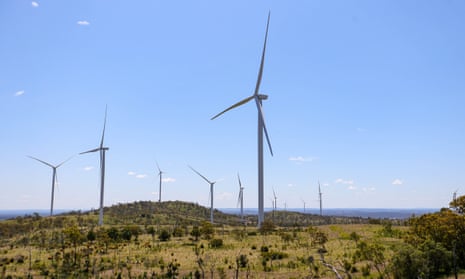Extract from The Guardian

By blaming the energy crisis on net zero policies, commentators have laid the fears and suffering of people around the world at the feet of climate advocates, the UN and any government with even the most moderate climate goals.
Some have screamed an “apocalypse” is coming if Australia pushes for net zero, pointing to Europe’s energy crisis as a harbinger of the supposed doom to come.
But last week, those famous greenies at the International Energy Agency – the world’s most influential energy policy organisation – tried to put those arguments to bed.
In its annual World Energy Outlook, the IEA’s executive director, Fatih Birol, wrote: “Faster clean energy transitions would have helped to moderate the impact of this crisis, and they represent the best way out of it.”
Despite energy analysts saying rising power costs in Australia – and around the world – are due to the cost of gas and coal on international markets, conservatives have consistently made a link to net zero policies.
Last month in the Australian, Nick Cater, the executive director of the Liberal party-aligned Menzies Research Centre, wrote that the cost of energy had gone up “in every country” that had tried to move away from fossil fuels, even before Russia’s invasion of Ukraine.
On an almost daily basis, the Nationals senator and former resources minister Matt Canavan links net zero policies to the pain caused by rising energy costs.
The Liberal leader, Peter Dutton, said in his budget reply speech last week that in Europe “countries are rationing power” and electricity and gas bills were “spiralling out of control”, with pensioners and low-income families having to choose between paying power bills and eating.
According to Dutton, this was “not only because of the invasion of Ukraine, but because governments in several countries in recent years have made catastrophic energy decisions” and had turned off generators “before the technology and system are ready for more renewable energy”.
So what does the IEA have to say on all this?
Birol said analysis for the agency’s report should “dispel some of the mistaken and misleading ideas” that the current crisis “is somehow a clean energy crisis”.
“That is simply not true. The world is struggling with too little clean energy, not too much,” he wrote.
“When people misleadingly blame climate and clean energy for today’s crisis, what they are doing – whether they mean to or not – is shifting attention away from the real cause: Russia’s invasion of Ukraine.”
The IEA said in the most affected regions “higher shares of renewables were correlated with lower electricity prices, and more efficient homes and electrified heat have provided an important buffer for some – but far from enough – consumers”.
Russia is the world’s biggest fossil fuel exporter. As countries looked to source oil, gas and coal from elsewhere, this caused a huge spike in costs that continues to reverberate around the globe.
But costs had been rising even before Putin’s invasion.
“Climate policies were blamed in some quarters for contributing to the initial run‐up in prices, but it is difficult to argue that they played a significant role,” the IEA report said.
“In fact, more rapid deployment of clean energy sources and technologies would have helped to protect consumers and mitigate some of the upward pressure on fuel prices.”
Safeguard scheming
“Emission impossible” read the headline on page one of the Daily Telegraph on Thursday, with a story claiming “tens of thousands of jobs” were at risk from the Albanese government’s revamp of a failed Morrison government emissions reduction policy.
The story finds four company submissions to the government’s consultation process on changes to the safeguard mechanism that complain they may not be able to reduce emissions fast enough to avoid paying a penalty under the scheme.
Glencore – predominantly a coalminer – complains some of its facilities may have to close (considering how all analysis shows coal’s days are numbered as the world decarbonises, this is hardly a shock). Alcoa, BlueScope and Opal express doubts they can cut emissions fast enough.
No comments:
Post a Comment